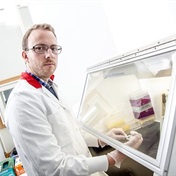Detailed information about a person's genetic makeup and their environmental risk factors does not significantly change their disease risk prediction, according to the results of a new simulation study.
The researchers, from the Harvard School of Public Health, said that much more research is needed before information on patients' genetic variants could actually help doctors prevent or treat certain conditions.
"Overall, our findings suggest that the potential complexity of genetic and environmental factors related to disease will have to be understood on a much larger scale than initially expected to be useful for risk prediction," study author Hugues Aschard, a research fellow in the epidemiology department, said. "The road to efficient genetic risk prediction, if it exists, is likely to be long," he added.
How the study was done
In conducting the study, the investigators examined whether or not disease risk prediction for breast cancer, type 2 diabetes and rheumatoid arthritis would improve if environmental risk factors were considered along with genetic risk. The study authors called this interplay of genetic and environmental factors a "synergistic effect."
The researchers simulated a wide range of possible interactions between environmental risk factors and common genetic risk markers related to the three diseases to determine if this simulation model would improve risk prediction.
For breast cancer, 15 common genetic variations associated with the disease plus certain environmental factors - such as age at first menstrual period and first birth, and number of close relatives who had breast cancer - were considered. In examining type 2 diabetes, the researchers looked at 31 genetic variations along with risk factors such as family history, obesity, smoking and physical activity. For rheumatoid arthritis, they considered 31 genetic variations, as well as smoking and breast-feeding.
These disease models, however, showed no significant improvement in risk prediction, and the researchers concluded that with this method, risk prediction sensitivity would improve by no more than 1% to 3%.
"Statistical models of synergy among genetic markers are not 'game changers' in terms of risk prediction in the general population," said Aschard.
Study senior author Peter Kraft, an associate professor of epidemiology at the Harvard School of Public Health, added: "For most people, your doctor's advice before seeing your genetic test for a particular disease will be exactly the same as after seeing your tests."
The study authors noted that additional research on genetic and environmental interactions can provide important clues about the cause of disease, which may lead to improved prevention and treatment.
The study was published in the American Journal of Human Genetics.
Read more:
Meet your genes
More information
The U.S. National Human Genome Research Institute provides more information on genetics and disease prevention.
(Copyright © 2012 HealthDay. All rights reserved.)




 Publications
Publications
 Partners
Partners











